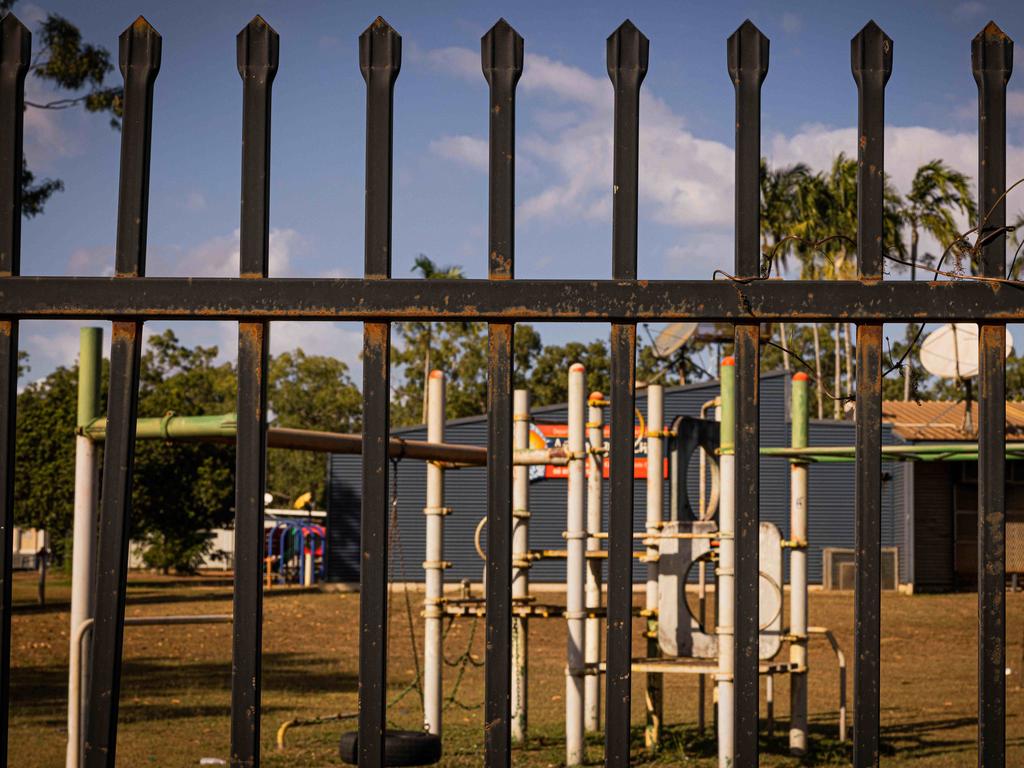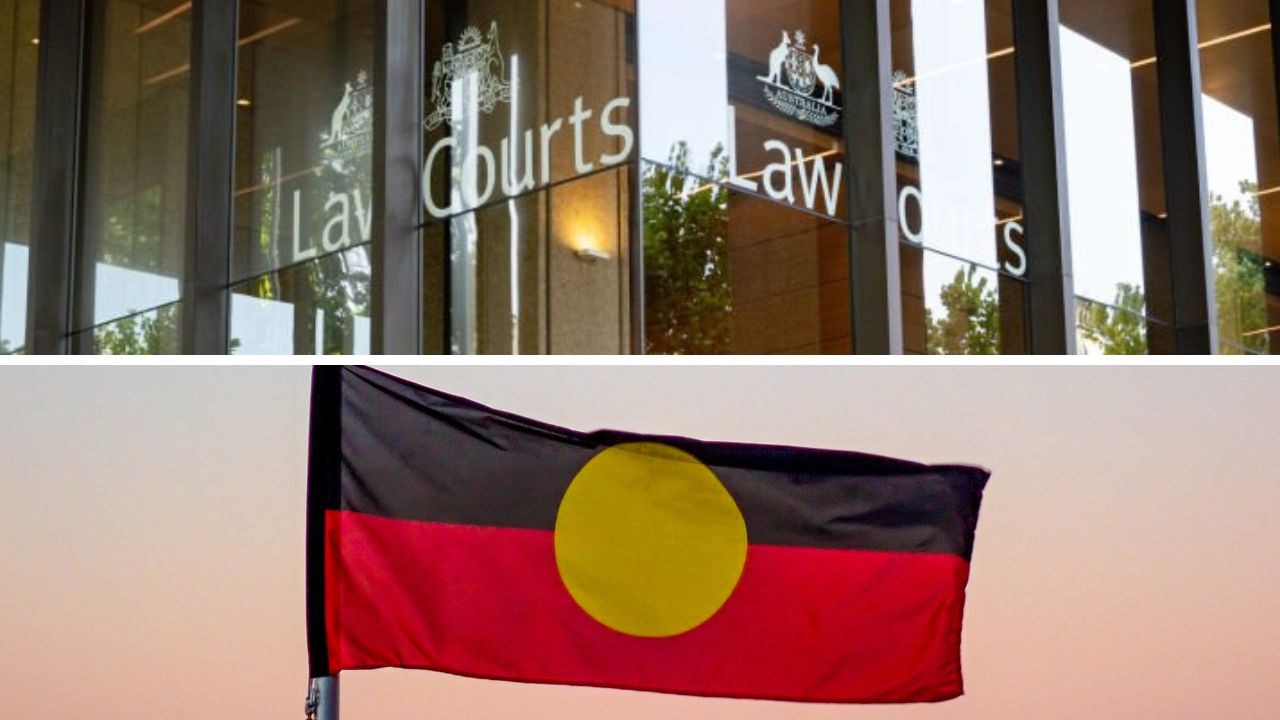NT schools in crisis: Linda Burney vows to close Indigenous schools gap with opportunity for all
NT families should have ‘more choice’ in schooling, Indigenous Affairs Minister Linda Burney says, committing to ‘close the gap in educational outcomes’.

Northern Territory families should have “more choice” in schooling, Indigenous Affairs Minister Linda Burney says, highlighting the lack of secondary education in remote communities and committing to “close the gap in educational outcomes”.
“Many remote communities in the Northern Territory do not have access to local secondary schools, which means First Nations families have limited choice about where and how their children are educated,” Ms Burney said in response to The Weekend Australian’s NT Schools in Crisis series.
She said the government was “determined to improve education options available locally in line with community needs and aspirations so we can close the gap in educational outcomes”.
The NT Schools in Crisis series revealed an annual funding shortfall of $214.8m in NT education funding which means at least one in five students in the territory are effectively unfunded, 58 per cent of all students and 85 per cent of Indigenous students fall below minimum literacy and numeracy standards, and attendance rates are as low as 20 per cent in some remote schools.
The head of the Yothu Yindi Foundation, which organises the Garma Festival where Anthony Albanese this year promised to hold the voice referendum, has called for an audit of how the NT spends commonwealth funding.
Denise Bowden said “systemic reform” was needed urgently and that the NT government should be made accountable for how it spends federal funds, following a week in which discussion of education spending and regulation dominated parliament.
“We do not have the luxury of playing with education matters here in the NT when we are coming from so far from behind,” Ms Bowden said. “Accountability is so vitally important. This is human capital that we’re referring to. This is the next generation.”
In a submission this month to the Productivity Commission’s Closing the Gap Review, the Yothu Yindi Foundation renewed its call for an urgent revision of the way GST funds are distributed.

In 2022-23, the NT received $3.644bn in GST funds, which the foundation said were “untied and without any designated purpose” and largely ended up in Darwin.
The foundation said it believed an overhaul of the GST and more transparency on how the funds were spent would go a long way toward education reform.
“The Department of Education and its system are failing children outside the major urban centres,” the submission said. “Local community-controlled schooling should be mandated in regional and remote communities. New models must be explored and a review of the curriculum must take place under community-led control.”
Ms Burney said the government was “committed to providing families in the Northern Territory with more choice in how their children engage with school by investing in more opportunities for on-country learning and reviewing current boarding school options in Central Australia, in collaboration with the Northern Territory government”.
“We have been working with the Aboriginal Leadership Group to determine how to best support First Nations students to access quality education on country, including expanding the junior rangers program.”
In August the Prime Minister used the Garma Festival to announce he would push ahead with holding a voice referendum. On October 14 the referendum was lost, with 60.8 per cent of Australians voting No at last count.
Many remote Indigenous Australians in the NT believed the voice to parliament would have put them in a position to address educational disadvantage.
In the NT’s largest Indigenous community, Wadeye, 400km by road from Darwin, 92 per cent voted Yes. On the Tiwi Islands, Yes votes tallied 84 per cent, and in Arnhem Land’s Maningrida it was 88 per cent.
“It’s a kick in the guts for all Indigenous people who want to see change in education,” said West Arnhem Regional Council mayor Matthew Ryan, who is based in Maningrida. “We need to send a strong message – the issues which affect Indigenous Peoples in remote communities are still unsolved.”
While community members in the Maningrida region recently set up the Homeland School Company to investigate establishing their own independent school, Mr Ryan said untold damage had already been done by educational inequality right across the NT.
“Remote communities whose schools are facing these same failures in education need to get together and start a class action immediately,” he said.
Garth Doolan, who is from the homeland of Gochan Jiny Jirra, said: “The voice was honestly pretty heartbreaking, we thought it would help close the gap, give us opportunity and help achieve our dreams. The government schools need a higher level of education for their students. That’s all I wanted – an opportunity for higher levels of education and further study. So we can have an Indigenous prime minister one day.”
Marion Scrymgour, the Labor MP for Lingiari, last week told Sky News she would raise issues on Indigenous spending with the Prime Minister’s office.
“We cannot continue to have these agreements signed with the Northern Territory government without there being an accountability on the ground,” she said.
Charles Darwin University political economist and former senior NT bureaucrat Rolf Gerritsen estimated almost a third of the NT’s expenditure intended for Aboriginal people, including for schools in the bush, “somehow ends up back in Darwin”.
A spokesman for the NT Education Department said there were “strict reporting measures” in place to ensure commonwealth funding arrangements were fully accountable.
Chief Minister Natasha Fyles said the NT government would always advocate for needs-based funding.
“To make sure funding is going to the right initiatives and programs we have a number of reporting measures, such as public reporting on the My School website and financial year reporting to the Australian Curriculum, Assessment and Reporting Authority,” Ms Fyles said.







To join the conversation, please log in. Don't have an account? Register
Join the conversation, you are commenting as Logout